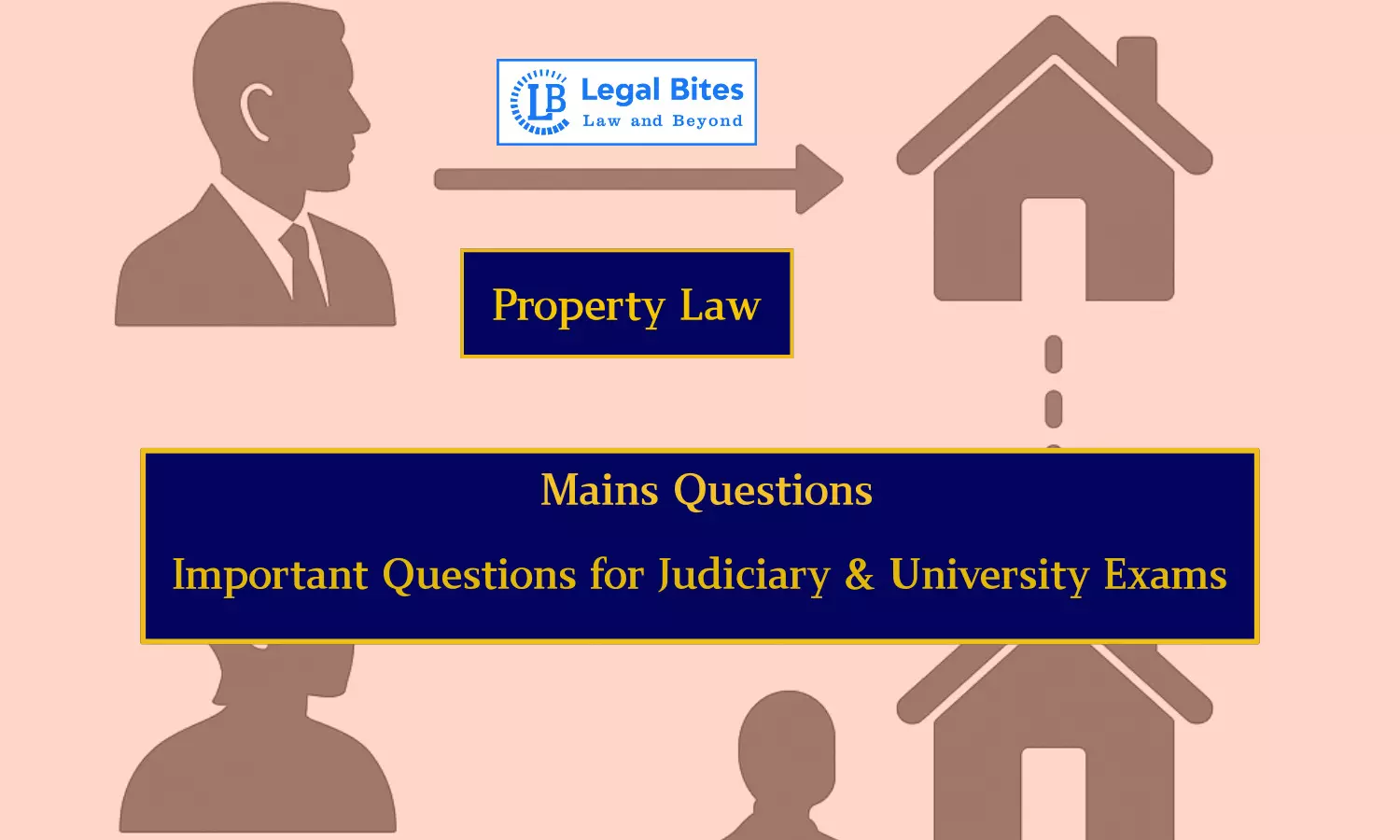Distinction between Vested Interest and Contingent Interest
Find the answer to the mains question of Property Law only on Legal Bites.

Under the Transfer of Property Act, 1882, when a property is transferred, the interest created in the transferee may either be vested or contingent, depending on whether it takes immediate effect or is subject to a condition. These two types of interests are legally distinct and have different implications regarding ownership, transferability, and inheritance. The distinction lies primarily in the certainty of the right and the presence or absence of a condition precedent.Comparison...
Under the Transfer of Property Act, 1882, when a property is transferred, the interest created in the transferee may either be vested or contingent, depending on whether it takes immediate effect or is subject to a condition. These two types of interests are legally distinct and have different implications regarding ownership, transferability, and inheritance. The distinction lies primarily in the certainty of the right and the presence or absence of a condition precedent.
Comparison between Vested and Contingent Interest
| Point of Distinction | Vested Interest | Contingent Interest |
|---|---|---|
| Governing Provision | Section 19, Transfer of Property Act, 1882 | Section 21, Transfer of Property Act, 1882 |
| Meaning | Interest takes effect immediately, though possession may be delayed | Interest depends on a future uncertain event |
| Nature of Right | Present and absolute right | Future and conditional right |
| Condition Precedent | Not required | Must be fulfilled before interest arises |
| Certainty | Ownership is certain | Ownership is uncertain |
| Transferability | Transferable and assignable | Not transferable until condition is fulfilled |
| Heritability | Passes to legal heirs even if the transferee dies before possession | Passes to heirs only if condition is fulfilled before death |
| Example | A transfers property to B for life, then to C → C has a vested interest | A transfers property to B if B marries before 30 → B has a contingent interest |
In essence, a vested interest is an immediately acquired legal right, unaffected by future uncertainties, whereas a contingent interest is a future interest dependent on the fulfillment of a specific condition. The law treats vested interests more favorably due to their certainty and immediate operability. Recognising the distinction between these interests is crucial in determining the rights of parties in property transfers, especially in matters involving wills, conditional gifts, and future interests in immovable property.

Mayank Shekhar
Mayank is an alumnus of the prestigious Faculty of Law, Delhi University. Under his leadership, Legal Bites has been researching and developing resources through blogging, educational resources, competitions, and seminars.
